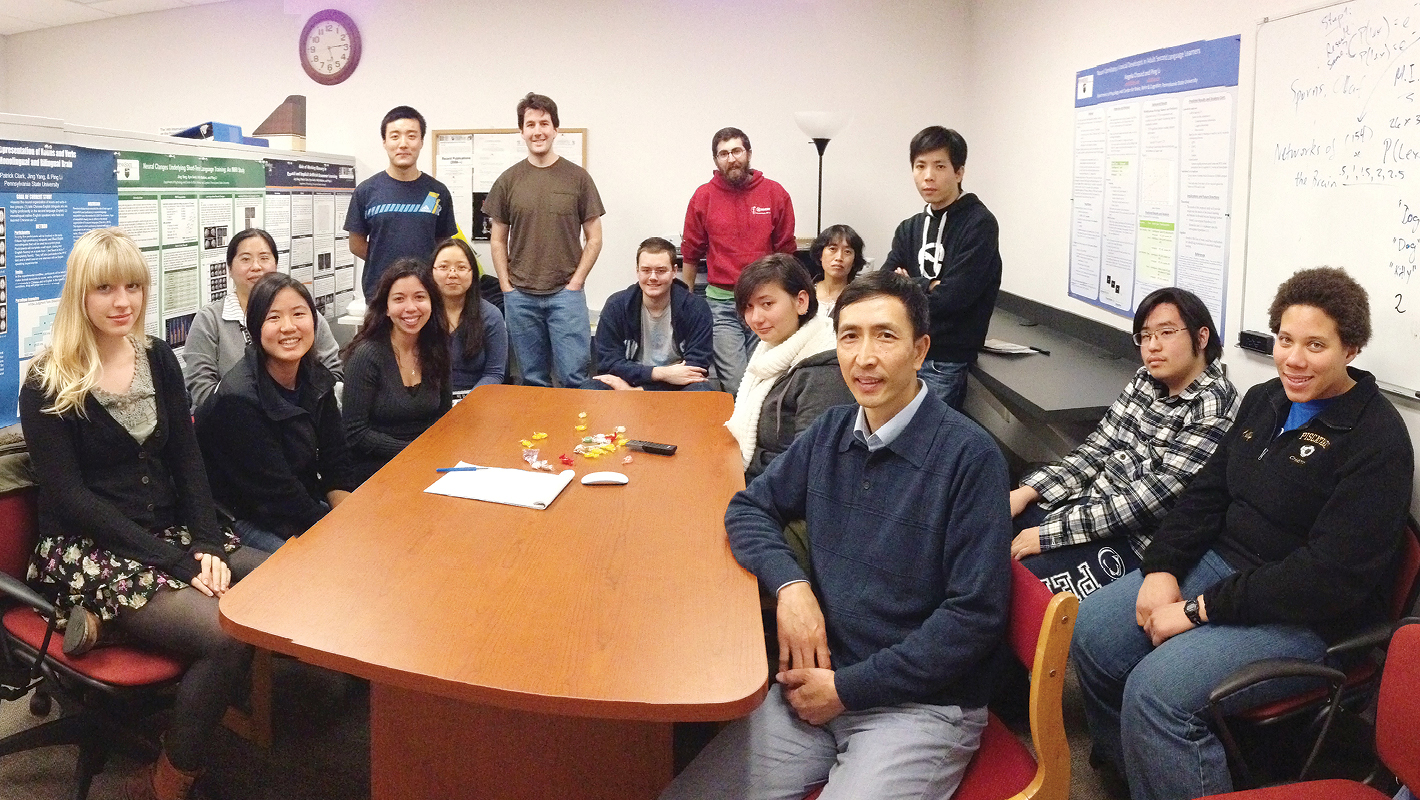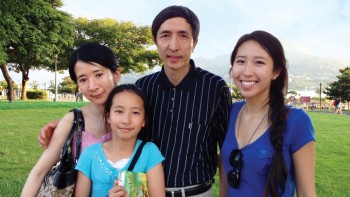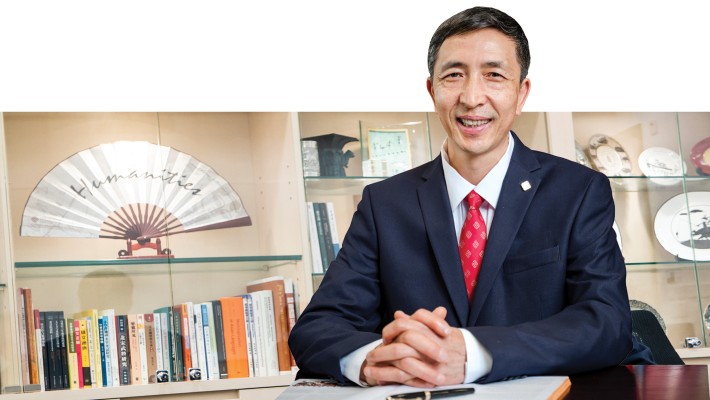An interview with Professor Li Ping - Brain, language and happiness
Other Articles
Professor Andrew Li Ping
- MA in Theoretical Linguistics, Peking University
- PhD in Psycholinguistics, University of Leiden, The Netherlands
- Assistant Professor, CUHK, 1992-1996
- From Assistant Professor to Full Professor, University of Richmond, 1996-2008
- Professor of Psychology, Linguistics, and Information Sciences and Technology, Pennsylvania State University, 2008-2019
- Joined PolyU in 2019 as Chair Professor
Professor Li Ping, Dean of the Faculty of Humanities and Chair Professor of Neurolinguistics and Bilingual Studies of the Department of Chinese and Bilingual Studies, is an internationally renowned scholar. He was appointed Changjiang Scholar Chair Professor by the Ministry of Education of China and was a recipient of a US National Science Foundation (NSF) grant through the Obama White House Brain Initiative in 2015. He also served as President of the Society for Computation in Psychology in 2012, and as Director at NSF for the Programmes in Perception, Action and Cognition from 2007 to 2008 and in Cognitive Neuroscience from 2008 to 2009.
With an impressive record of obtaining research grants from national and international funding bodies, Professor Li focuses his research on understanding the developmental, neural and computational bases of language learning and representation, and the relationships between language, culture, and technology.
In laymen terms, he is exploring the way the brain handles and stores language, considering not just one, but multiple languages. One of his on-going projects looks at the effect the excessive use of electronic devices has on the brain’s ability to absorb and interpret the hierarchical knowledge structures used in scientific writings. Equally interesting is the Virtual Reality (VR) Language Laboratory he has set up at PolyU, which uses technology to facilitate language learning. Professor Li found that VR learning induces positive brain changes, meaning that with the same amount of time and learning materials, a VR setting promises to be much more conducive to the acquisition of a new language than a conventional classroom setting. (Read paper)
Professor Li describes his career as being interdisciplinary, leading to diverse perspectives and approaches. Prior to joining PolyU, he was Professor of Psychology, Linguistics, and Information Sciences and Technology at Pennsylvania State University in the US. He is currently Editor-in-Chief of Brain and Language, Associate Editor of Frontiers in Psychology: Language Sciences, and Editor Emeritus for Bilingualism: Language and Cognition and Journal of Neurolinguistics, among other editorships.
Humanities matter
Professor Li believes that the study of humanities is central to PolyU’s mission to provide a holistic education to the younger generation. He points out that all world-class universities, including those known for their technical orientation, such as MIT and Caltech, are very strong in the humanities. He explains that students need to be armed with imagination and curiosity, critical thinking and communication skills, and a broad perspective to look at the world and to understand what it means to be ‘human’.
He points out that having a broad perspective not only prepares students for a fruitful career but also makes them globally-minded citizens. When Professor Li reflects on the state of divisiveness that plagues many societies in the world today, he sees that many groups are locked stubbornly in their own position and are unable to communicate, let alone reconcile, with one another, which may be due to their lack of empathy. The study of humanities can help to find future solutions to these issues, for example, by collaborating with neuroscience and psychology, to unlock the mysteries of the human brain and to help people become more open and receptive to other points of view.

Professor Li and his students
Professor Li regards his present appointment at PolyU as an opportunity, as well as a challenge as he breaks out of his comfort zone. For him, the spirit of PolyU is best captured by the bricks with which it is built. A brick is solid and resilient and has many angles, edges and faces. It symbolises for him the gravitas and multifaceted character of this University.
A life of passion, commitment, and optimism

Professor Li with his family
When he has free time, which is admittedly rare, Professor Li likes to curl up with a good science fiction book, where imagination merges with scientific curiosity. He lives by two mottos, one in Chinese and the other in English: “老老實實做人,認認真真做事 (Be earnest with your life; be serious with your work)” and “Don’t worry, be happy”, respectively reflecting a responsible and optimistic approach to life. He suggests pursuing a virtuous circle of passion, commitment, and optimism: if we are passionate about what we do, we become responsible; because we are responsible, we perform well in our work and life, which makes us happy; and because we are happy, we become all the more passionate about what we do.






